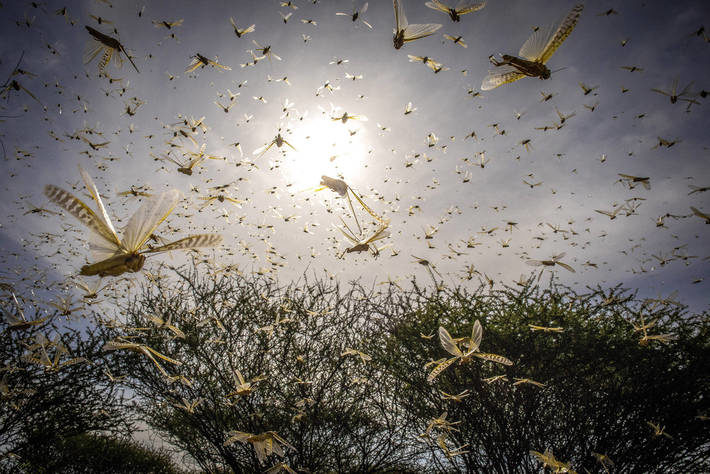ROME, ITALY — To help combat the surge of Desert Locust in East Africa, the European Union contributed €15 million to the Food and Agriculture Organization of the United Nations (FAO).
According to the FAO, the Desert Locust is considered the most destructive migratory pest in the world. A small swarm covering one square kilometer can eat the same amount of food in one day as 35,000 people.
The European Commission said it had allocated funds to support the UN agency and partner countries in combatting the worst Desert Locust upsurges seen in the region in decades. The funds came via the European Commission's Directorate-General for International Cooperation and Development (EU DEVCO). The EU made a previous contribution of €11 million to the locust appeal in February.
“I want to thank the European Union for its generous contribution and sustained support,” QU Dongyu, director-general of FAO. “The battle against the Desert Locust is a long one and far from over -- sustained support is critical if we are going to contain this pest threat.”
According to the FAO, its support has helped kill nearly half a trillion locusts in the Horn of Africa and Yemen in control operations since January and 1 million tonnes of crops have been spared from devastation.
Even though the control operations expand 500,000 hectares, heavy rains during this spring season created ideal conditions for reproduction and the potential destruction caused by the new-generation swarms could still provoke a humanitarian crisis as new swarms strike Ethiopia, Kenya, Somalia, Sudan, South Sudan and Yemen.
“Our friends and partners in the Horn of Africa have experienced the catastrophic consequences of this Desert Locust outbreak on livelihoods and food security, a situation that is aggravated by the coronavirus pandemic which has made intervention efforts more difficult,” said Jutta Urpilainen, the EU Commissioner for International Partnerships.
Unfortunately, the locusts are not a new food security challenge in the region. Before the locusts, 25 million people were facing acute hunger in Eastern Africa in 2020, according to the recent Global Report on Food Crises. An additional 17 million people in Yemen were in the same situation. The coronavirus (COVID-19) pandemic is also creating food security issues.
There is also concern that some of these swarms will migrate to India and Pakistan while others could potentially spread to West Africa, as indicated in FAO's latest revised appeal.
The FAO is assisting governments and other partners with surveillance and coordination, technical advice and the procurement of supplies and equipment.
To continue reducing the spread of the locusts, FAO recently raised its Desert Locust appeal to $311.6 million to deal with the expansion of the upsurge and so far, $178.9 million has been received or committed to the appeal.
However, the FAO warned without additional funding, control efforts could slow down or halt by late September or October, potentially allowing the numbers of the crop-devouring pest to explode again in some places.
“We cannot falter in our fight against locusts,” Qu said. “The food security situation is already dire for millions of people.”
Follow our breaking news coverage of the coronavirus/COVID-19 situation.






